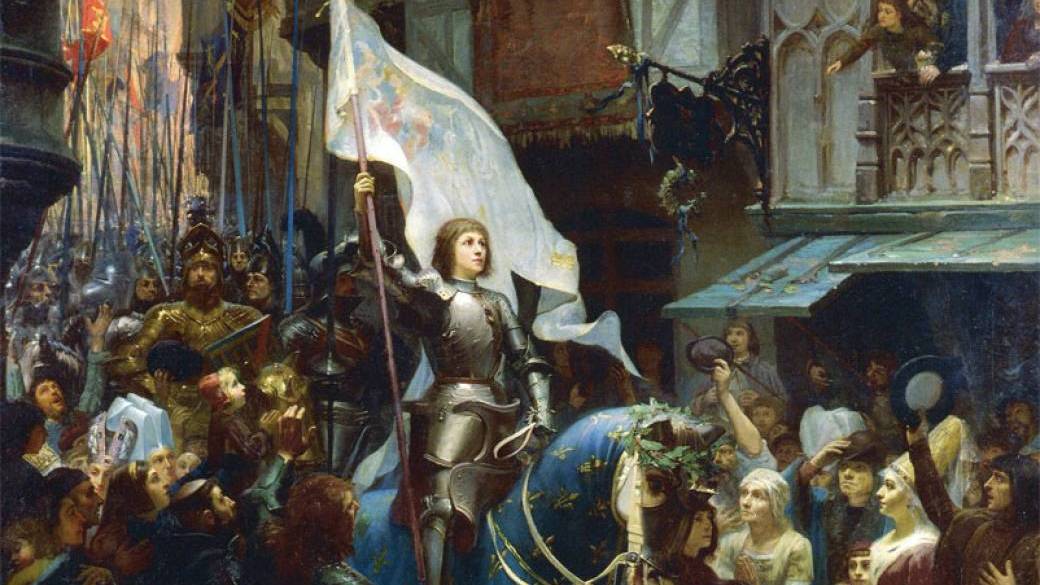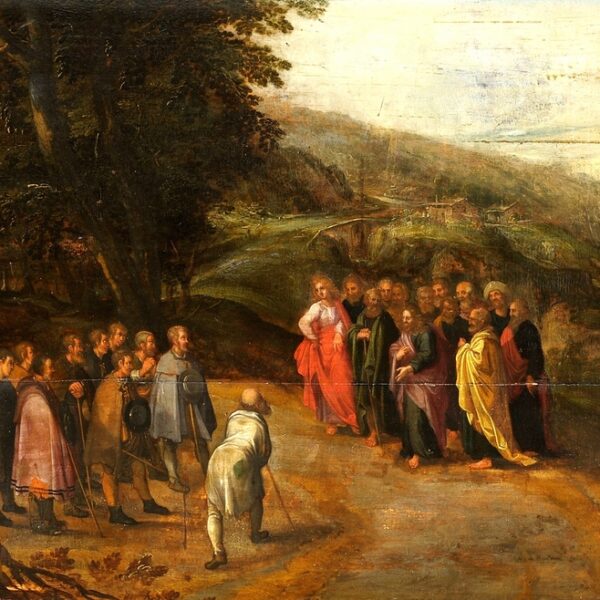Preserving a nation: why Joan of Arc’s story matters to the church today

Hell’s trifecta trap: Cynicism, Idealism, and Fatalism
June 26, 2024
Have we neglected God’s heart of prayer for our homeland?
July 9, 2024Few biographies generate as much controversy and confusion as that of Joan of Arc, or “Jeanette” as she was called. Born in Domremy, France in 1412 into a peasant family, her mother was a woman of prayer whose devotion had led her on a pilgrimage. Joan worked the fields for her family, but she loved church and prayed so much that her friends teased her.
France had been in a long war. Dukes allied with the English had overtaken large portions of Joan’s country and ruled the north of France. The French throne belonged to Charles VI, but his wife Isabeau schemed with other nobles to undermine French rule while profiting themselves.
Because of the Hundred Years War over the disputed throne, life was tough. Raiders burned villages and stole poor people’s crops and livestock. After a terrifying raid on Joan’s own village, she began to hear voices and to see visions. These voices belonged to the archangel Michael and two martyred saints.
At first, they simply encouraged her in prayer. Over time, they became more specific. They told Joan she had a mission: to deliver France from English control and to take the dauphin, Charles VII, to the city of Reims to be crowned.
Joan’s astonishment was real: barely a teenager and not even comfortable on a horse, she was to lead an army?
In 1429, the voices Joan heard urgently told her that she was to rescue the city of Orléans. Orléans was important as it was the final holdout against the English. She had great difficulty getting anyone to take her seriously, but at last the governor of the region sent Joan with an armed escort to see the dauphin.
Supernatural words of knowledge
When Joan arrived at the castle of Chinon in March of 1429, she was put to a test. In the court, there was a crowd of people, including one man dressed as the dauphin. Joan, having never seen Charles before, ignored this decoy and instead went straight to the real dauphin, who was dressed as one of the crowd. Kneeling before him, Joan said, “God give you life, gentle king.”
Later, in private, she told Charles something only he and God knew. He secretly anguished over whether he was truly of royal blood. His mother, who was not a virtuous woman, had told him he wasn’t really the son of King Charles VI. Charles had prayed that if he were not the rightful heir, God would take away his desire to reign. Joan told him that her voices had informed her that he was indeed of royal blood.
Prophecies fulfilled
Besides the French army having nothing to lose by a poor teenage girl leading it, there was something else in Joan’s favor: people remembered a prophecy that France would be lost by a woman but saved by a maiden. They saw the treacherous Isabeau in this prophecy, and Joan as the possible deliverer.
Precious time was lost as some insisted Joan be questioned by church scholars in another town. When they asked her to perform miracles she stated, “My mission is not to perform signs and wonders. At Orléans you will see miracle enough. With few or with many, to Orléans I will go.”
There were four prophecies Joan gave. “Orléans I shall relieve. The dauphin I shall crown in Reims. Paris will come back to its true king. The Duke of Orléans, captive in the Tower of London, will return home.”
All four prophecies were fulfilled.
Charles assigned Joan personal staff. Two of her brothers were in her army unit. But not all the king’s men were pleased. They ridiculed her for being a girl and of low birth.
On Joan’s shield was painted a dove holding in its mouth a scroll. On the scroll was written, “By command of the King of Heaven.”
She sent word to the English, urging them to surrender. If they relinquished the keys to France’s cities, there would be no bloodshed. If they refused, their deaths were on their own heads.
Undermining Joan’s clear instructions from heaven were the men around her. Jean d’Orléans, the half-brother of the Duke of Orléans later became her great ally. But his desire to wait for reinforcements cost the French army dearly when Joan had word from heaven that the time to strike was now. For this, she gave the Duke’s brother a severe tongue lashing.
When the English surprise attacked, Joan was sleeping and no one thought to wake her. Her voices woke her and she hurried to the head of the army. The men’s spirits soared. A shout went up and the weary French forces prevailed.
Two days later, the governor of Orléans argued against pursuing the retreating English army. Joan insisted. Again, she led her army, and again, France saw victory as nearly all the English were captured or killed.
Joan prophesies victory and her own injury
Joan ordered the general to prepare to take the City of Les Tourelles. She prophesied that she would be wounded in the battle below the left shoulder, but the wound would not be fatal. She also foretold great victory for the French. And that is exactly what happened.
On May 7th, Jean d’Orleans and Joan attacked the English invaders around the city and captured the Duke of Suffolk. It was such a wildly impossible victory, that six hundred years later, France still celebrates it on May 7th.
Word of the Maiden went around. After this, the English simply opened their gates to the French army. They easily captured two more cities.
In the summer of 1429, Joan marched with Charles and thousands of Frenchmen to his coronation in Reims. Even her mother and father and two brothers came. She stood next to the dauphin as the crown was placed upon his head to shouts of acclaim.
A triumphant nation undermined by weak leadership
Sadly, Charles proved to be a weak king. Although she’d never counseled him wrong, he and his advisors did not trust Joan’s instincts. They looked for shortcuts to reinforce French rule over English outposts, and sought to make peace with the Burgundy rulers through a treaty which Joan cautioned against.
Joan’s voices told her that in the summer of 1430 she would be captured and imprisoned by the English. And that is what happened.
At the court in the English occupied city of Rouen, powerful figures sought to set public opinion against Joan. A bishop, Pierre Cauchon, was her chief interrogator. Among the charges against Joan were sorcery because of hearing voices, and the sin of wearing men’s clothing.
Every day the court and her accusers assembled. Every day they questioned Joan about her beliefs.
At first, she stood up well to her accusers. Uneducated, she answered as well as any of them. After many weeks of interrogation and being in chains and taunted and threatened with sexual assault by the guards, she began to break down. A few people were sympathetic in Rouen, including a Friar. But in court, she was against many foes with no friends to sustain her.
Tricked finally into signing a confession, her voices told her in sorrow she had made a grave mistake.
The punishment for her crimes was to be burned at the stake.
Even with this dreadful news, Joan gave one more prophecy: It came true in 1450 when the English were finally driven from France forever
Joan was permitted to take communion, which contradicted church law since she’d been excommunicated. On May 30, 1431, she walked barefoot down the streets of Rouen to the place of her execution. Tied to the stake, she requested a cross be held up before her. This was granted. It was witnessed by those around her that she called out the name of Jesus several times before the flames engulfed her.
As Joan died, the king’s secretary cried, “We are lost! We have burned a saint!”
Why Joan’s story matters
I’ve read numerous biographies on Joan, and my personal conclusion of her life, the voices, and the fate of France is this: the Lord met a young person right where she was at – a teen whose only access to the scriptures was what was filtered through the medieval Roman Catholic church – and used her piety and single-mindedness to secure the boundaries of a nation for centuries. God chooses the foolish things of this world to confound the wise (1 Cor. 1:27) – in this case a peasant girl – and His eyes are on the faithful in the Land (Psalm 101:6).
Joan’s story matters because it punctuates God’s concern for the fate of nations, and the lengths He’ll go to in order to preserve them – or hand them over to severe judgment.
Scripture speaks of God’s interest in nations in both the Old Testament and New. The word “nation” or “nations” appears 731 times, and while Strong’s Concordance translates that word to mean “heathens” and “gentiles” as well as simply “peoples”, the overwhelming majority of the time the word is translated from KJV to our English word nation, defined as “a stable, historically developed community of people with a territory, economic life, distinctive culture, and language in common” (Webster’s New World Dictionary, 1962).
Not a small amount of verses speak of God judging the nations, particularly at the end of the age (see Isaiah 2:4, Micah 4:3, Revelation 11:18, et al). Scripture speaks of God arbitrating between nations, or settling disputes. One of the most famous passages in scripture points to God judging each of the nations on earth in accordance to how they treated Jesus’ brethren Israel (see Matthew 25:31-46). Scholars note that the word used here for nations refers to the gentile peoples, and that the whole world will be hostile to Israel by the end of the age, save for a few exceptions. Certainly we see this phenomenon taking shape now.
God cares about nations and their boundaries
“God’s providence concerns itself, not only with the fate of individual men, but also with that of nations. With Israel, his ‘peculiar people’ (Deuteronomy 14:2), He especially concerned himself, but not with Israel only. Babylon, Assyria, Egypt, Elam, Edom, Ammon, Moab, were likewise objects of his attention, of His guidance, of His chastening hand, of His avenging rod. Particular nations were consigned by God to the charge of particular angels (Daniel 10:13, 20). At His pleasure he can ‘increase’ nations by blessing them with extraordinary fecundity (Exodus 1:7-12), or “destroy” them by internal decay, by civil wars, or by the swords of their neighbours” (Pulpit Commentary, Biblehub.com)
Job observed, “He increases nations and He destroys them” (Job 12:23).
The Apostle Paul proclaimed, “From one man He made every nation of men, that they should inhabit the whole earth; and He determined their appointed times and the boundaries of their lands” (Acts 17:26)..
In my next bog, I’ll be expanding on the scriptural theme of God’s regard for the nations and how His people fit into this.
References:
Joan of Arc: the teenager who saved her nation by Philip Wilkinson.
Joan of Arc: heavenly warrior by Tabatha Yeatts
Seven Women and the Secret of Their Greatness by Eric Metaxas
Joan of Arc by Josephine Poole Illustrated by Angela Barrett





